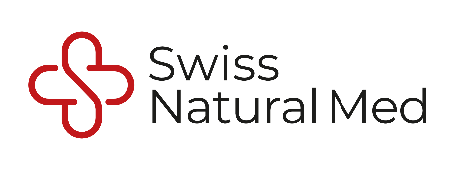Do you want to understand how to eat but without putting on belly fat and hips? To understand how many calories to consume per day to avoid gaining weight, it becomes important to estimate the calories of the foods we eat daily, compared to the estimate of the calories that our body is able to burn.
However, we should also evaluate the quality of the foods we consume . Focusing solely on mathematical calculations may not fully reflect the nutritional impact of our meals.
Favoring high-quality, nutritious foods can help meet our nutritional needs without gaining weight, even if we don’t strictly stick to a precise calorie estimate, only an estimate.
How to calculate basal metabolism?
To evaluate the basal metabolism " BMR ", that is the calories burned by our body to maintain vital functions in total rest during the day, there are different formulas, from the simplest to the most complex.
Among the simple ones, there is a very convenient one based on METs (metabolic equivalents) developed by the American College of Sports Medicine. According to this formula, an approximate energy expenditure of 1 kcal per kilogram of body weight per hour is calculated.
For men:
Basal Metabolism = 1x body weight (or ideal weight) x 24 hours
For women:
Basal Metabolism = 0.9 x body weight (or ideal weight) x 24 hours
It is important to note that these formulas provide only a rough estimate and that your basal metabolic rate can vary based on several factors, including age, gender, height, ethnicity, and body composition.
For a more accurate assessment of your basal metabolism, you can rely on our free test that can select the most accurate scientific formula based on all interpersonal variables 👇
Do you want to know which diet is right for you and how to activate your metabolism?
Take our free test now to receive specific nutritional advice and a personalized meal plan that will help you live a healthy life.
Take control of your life and adopt a proactive approach to health and nutrition.
GO TO THE NUTRITIONAL TESTCalculate the calories to consume per day to avoid gaining weight
To determine daily energy expenditure, also known as total metabolism , we can make an estimate considering that basal metabolism constitutes approximately 70% of the calories consumed during the day.
The remaining 30% includes calories needed to digest food and those used during physical activity performed by the average population. It is important to note that for individuals who regularly practice intense sports activity, more than two hours a day, it is necessary to apply different calculations and formulas.

Example of calculation of total daily requirement
A 55 kg woman has a basal metabolism of 0.9 kcal x 55 x 24 = 1188 kcal , to which we add 30% (10% from ADS and 20% from activity): 1188 + 30% = 1544 kcal for a woman who does not perform heavy work, weighs 55 kg and who trains 3 times a week.
How to calculate extra-basal metabolism more accurately
To determine total daily caloric needs, you can use the Harris-Benedict equation, which multiplies your basal metabolic rate “BMR” by the appropriate activity factor, as follows:
- Sedentary (little or no exercise): BMR x 1.2
- Moderately active (light exercise/sports 1-3 days/week): BMR x 1.375
- Moderately active (moderate exercise/sports 3-5 days/week): BMR x 1.55
- Very active (intense exercise/sports 6-7 days per week): BMR x 1.725
- Very active and very hard (very hard and very active exercise/sport): BMR x 1.9
Eat foods that burn more!
Food-specific dynamic action, also known as adaptive thermogenesis , refers to the ability of the foods you eat to influence your metabolism after being ingested, usually lasting up to ten hours after your last meal.
Some foods can temporarily boost your metabolism, speeding up the rate at which your body burns calories to ingest, digest, and absorb them , while others may have less of an impact.

The highest calorie intake values reported for separate nutrients are 0 to 3% for fat, 5 to 10% for carbohydrates, 20 to 30% for proteins .
On average, in healthy subjects on a mixed diet, calorie consumption related to meals represents approximately 10% of the total amount of energy ingested in 24 hours.
So, since there is no food that consists exclusively of proteins, the difference in caloric expenditure to digest one particular food compared to another is very limited.
How many calories should I eat to avoid gaining weight?
Do you want to know how many calories to consume per day to avoid gaining weight? The truth is that there is no easy way to lose weight and using a mathematical model to define a dietary strategy that prevents weight gain can often prove ineffective, without a precise strategy.
Most people have been taught that losing weight is simple math: Cut 500 calories a day and by the end of the week you’ll have a 3,500 calorie deficit and will lose a pound. However, experts have long since discovered that this decades-old strategy is actually quite misguided.
How your body metabolizes calories depends on several factors, including:
- The quality of the food you consume
- The quantity and quality of sleep
- The time you eat food
- The variety as well as the quantity of the intestinal microbiota
Two people can eat exactly the same amount of calories and get very different results in terms of body weight.
To aid weight loss, many recommend creating a daily calorie deficit of between 200 and 500 calories.
This can be achieved by keeping your calorie intake in line with your body's energy needs, known as "normocaloric," and incorporating about an hour of physical activity. Alternatively, you can follow a low-calorie eating plan, reducing your calorie intake to create an equivalent deficit. Of course, you'll get even better results by combining both of these strategies.
The quality of your food greatly influences your metabolism
Your food choices can affect your metabolism, not just by their caloric content, but also by their molecular specificity. A 2019 study published in Cell Metabolism found that consuming processed foods appears to cause people to consume more calories than consuming unprocessed foods.
In the study, 20 participants (10 men and 10 women) were divided into two groups. Both groups received meals with the same number of calories and similar amounts of nutrients , but one group consumed unprocessed foods while the other consumed ultra-processed foods.
After two weeks, the groups reversed their diets for another two weeks. The results showed that the people who consumed ultra-processed foods gained weight .

Another concrete example is the consumption of conventional pasta, that is, made with modern varieties of genetically modified wheat, where your digestive enzymes may not be able to properly dismantle the protein part (gluten) because it is too artificially complexed.
This mechanism leads to an alteration of glycemia, causing an excessive spike in blood sugar that can lead to the accumulation of body fat.
On the contrary, with a plate of pasta that comes from ancient varieties of durum wheat , the body, in the same quantity, is able to correctly break down gluten, maintaining adequate control of blood sugar and promoting a greater feeling of satiety, thus promoting better body composition and well-being.
How Sleep Affects Metabolism
There is a bidirectional relationship between sleep duration and weight loss, as short sleep duration (both acute and chronic) and poor sleep quality appear to hinder fat loss.
A study by Wang and colleagues examined this relationship through an eight-week randomized trial of calorie restriction with or without sleep restriction . They found that sleep restriction of an hour or more per week led to a slower rate of fat loss in people on a calorie-restricted diet.
Sleep deprivation affects appetite and hunger, altering metabolic and endocrine function. Glucose and insulin sensitivity have been observed to decrease, while evening cortisol and ghrelin levels increase, and leptin levels decrease.
This leads to an alteration of the neuroendocrine mechanism of appetite control, characterized by a reduction in the levels of leptin, the satiety hormone, and an increase in the levels of ghrelin, the hunger hormone.
Both duration and quality of sleep influence food intake.
In a cross-sectional study conducted by Nedeltcheva and colleagues, they found that people tended to consume greater amounts of high-carbohydrate snacks (especially between 7 p.m. and 7 a.m.) when they slept less than usual (i.e., 5.5 hours instead of 8.5 hours) over a 3-week period.
The time you eat affects your metabolism
Your body has a circadian biological clock, which allows it to regulate the functionality of the organs, maintaining a certain synchronization with the natural cycle of day and night.
Most organs and their metabolisms are programmed to function better during the day and slow down at night, as your body is more active during the day and prepares to rest at night.
For example, the liver is one of the main organs influenced by the circadian clock. During the day, when metabolic activity is expected to be higher, the liver increases the production of enzymes involved in digestion and nutrient metabolism. During the night, when metabolic activity decreases, the liver slows down the production of these enzymes.

Similarly, the pancreas regulates insulin secretion in response to signals from the circadian clock. During times when increased food intake is expected, such as during the day, the pancreas releases insulin to manage nutrient absorption. During times of fasting, such as overnight, insulin release is reduced.
When the circadian clock is disturbed, for example by changes in sleep/wake cycles or eating patterns, organs can become out of synchronization.
This, for the same caloric intake, can lead to lower metabolic efficiency and greater susceptibility to conditions such as obesity, diabetes and cardiovascular disease.
How many calories to consume to lose 1 kg?
If you want to lose a kilo quickly you have two main paths to follow:
- Traditional calorie deficit based on the old physical-mathematical theory:
- Create a calorie deficit of about 1000 calories per day (burn 1000 more calories than you consume)
- Cons: May lower metabolism at the end of the course
- Eat the same amount of calories you burn:
- Improve the quality of food to direct your metabolism in your favor. Allow cells to burn more.
- Benefits: Does not lower metabolism
How many calories a day to lose 5 kg in a month?
To lose 5 kg in a month in a healthy and sustainable way, you need to create a calorie deficit of about 500 calories per day.
This means you should burn 500 more calories than you consume through food and drink.
The exact amount of calories you should consume per day to lose 10 pounds in a month depends on several factors, including your current body weight, your activity level, and your individual goals.
In general, a daily calorie intake of about 1200-1500 calories for women and 1500-1800 calories for men should be enough to create a 500 calorie deficit and lose 10 lbs in a month.
However, it is important to keep in mind that excessive calorie restriction can be harmful to your health.
If you are not sure how many calories you should consume per day, take the free test now and in 2 minutes you will discover your daily requirement personalized for you!
Discover the right requirement for your body 👇
Take the test now (in just 2 minutes!) to receive specific nutritional advice and a personalized meal plan that will help you live a healthy life.
GO TO THE NUTRITIONAL TESTGut Microbiome and Metabolism
The microbiome, a community of bacteria that reside in our gut , can influence how much food we eat and how much weight we gain. Some studies show that the microbiome can directly influence how much energy we get from food and how full we feel after eating.
Additionally, the types and numbers of gut microbial populations in obese and lean people are different, which can affect how much food we extract from our diet.
In addition to directly influencing food, gut bacteria can also communicate with our brain to regulate hunger and satiety. For example, certain short-chain fatty acids (SCFAs) produced by gut bacteria can influence the production of hormones that make us feel full.
The specific communities of bacteria that reside in our gut can influence our weight and fat mass even if we eat the same amount of food.
When bacteria-free mice were transplanted with the microbiomes of obese mice, they gained more weight, even though they ate less. These findings suggest that the microbiome can modulate the host's energy balance, which is important for regulating our weight.
Foods that can positively influence metabolism
Foods that nourish gut bacteria and promote the production of short-chain fatty acids that can positively influence metabolism include not only foods rich in fermentable fiber, but also those containing polyphenols, the colored pigments found in plants with antioxidant properties.
Here are some examples of foods that can support the production of short-chain fatty acids:
1. Fruits and vegetables: In particular, fruits such as apples, pears, berries, bananas and vegetables such as carrots, broccoli, cabbage and Brussels sprouts are rich in fermentable fiber and polyphenols.
2. Whole grains: Oats, spelt, barley, quinoa, and other whole grains contain fiber and polyphenols that can be fermented by gut bacteria.
3. Legumes: Beans, lentils, chickpeas and peas are rich in fibre, complex carbohydrates and polyphenols which can support the growth of gut bacteria and the production of short-chain fatty acids.
4. Nuts and seeds: Almonds, walnuts, flaxseeds, and chia seeds are good sources of fiber, healthy fats, and polyphenols that can support gut microbial diversity and the production of short-chain fatty acids.
5. Yogurt and other fermented dairy products: Fermented dairy products such as yogurt and kefir may contain probiotic bacteria and polyphenols that contribute to the health of the gut microbiota and the production of short-chain fatty acids.
6. Fermented foods: Kimchi, sauerkraut, kombucha and other fermented foods are rich in probiotic bacteria, fiber and polyphenols, which can promote gut microbial diversity and the production of short-chain fatty acids.
Conversely, industrialized foods rich in refined sugars and food additives, common in the Western diet, can trigger intestinal and systemic inflammation, negatively affecting metabolism.
Scientific references
Review Cell Host Microbe. 2023 Feb; doi: 10.1016/j.chom.2023.01.009. Gut microbiome lipid metabolism and its impact on host physiology
Nutrients. 2022 Apr; 14(8): 1549. doi: 10.3390/nu14081549 ; Sleep Deprivation: Effects on Weight Loss and Weight Loss Maintenance
Handb Exp Pharmacol. PMC 2014 Jul 9.doi: 10.1007/978-3-642-25950-0_6 Circadian Clocks and Metabolism
BMC 29 July 2022; Metabolic control by the microbiome
Nutrition. 1993 Jul-Aug;9(4):373-80.; Influence of autonomic nervous system on nutrient-induced thermogenesis in humans



